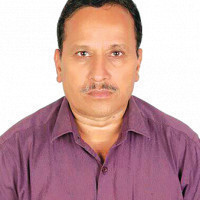- Friday, 28 November 2025
Prioritise Disaster Management
Though Nepal has been grappling with multiple difficulties such as the price hike of essential commodities and petroleum products, political leaders and cadres seem to be busy celebrating their victory in the local elections. They are found putting on vermilion on their foreheads as a sign of winning and taking out rallies to spread the message they have won the polls.
On the other side, the Nepali people, after casting their votes to the candidates of their choice, have pinned high hopes on their newly-elected representatives that they would dedicate themselves to resolve the problems facing the locals. They can be agents of change as they exercise many exclusive powers.
The Constitution of Nepal, 2015 considers local levels as integral sovereign units of the State in the three-tier federal system of governance. Local leaders enjoy executive, legislative and semi-judicial powers as spelt out in Schedule-8 of the national charter. Local planning, health and sanitation, market management, taxation and formation of town police are a few rights to mention.
The local levels also can exercise concurrent powers of federation and the provinces. These rights are crucial in addressing local issues and problems related to the disaster and squatters’ management.
Though forgetting pains, wounds and calamities of the past is the good quality of mankind, the majority of Nepali people cannot forget the flash floods that hit Melamchi on June 15 last year. It took the life of many locals, damaged the Melamchi Drinking Water Project and flooded scores of houses in Melamchi Bazaar and swept away hundreds of animals and a vast swath of paddy fields in Sindhupalchowk district alone.
Similarly, Khorke Khola in Birendranagar of Surkhet district had also displaced a large number of landless squatters living along the bank of river. It is still not known how many people died there. Likewise, more than 2,000 people were displaced, and paddy crops planted in 50, 000 hectares was damaged by the Mahakali River last year. The floods in the Karnali River claimed the lives of over 100 people sheltering on both sides of the river,
Numerous other rivers such as the Bagmati River, Ratuwa River and Mechi River have been creating havoc to the Terai and Madhesh squatters and poor settlements for centuries. Similarly, Bishnumati, Rudramati, Manohara, Hanumante Khola and other rivulets in the Kathmandu Valley take the lives of landless people and farmers in monsoon every year.
Last year’s floods and landslides did not spare the poor people living in the flood and landslide-prone areas in Palpa, Pokhara, Manang and Mustang.
The elected people’s representatives have been aware of these calamities. They make tall promises of shifting the vulnerable settlements to safer sites but they often fail to keep their word. So, the relocation of such settlements should be the first priority of the newly-elected leaders in order to save the lives of people. Such an initiative on the part of the leaders will also help earn respect from the local people.










-original-thumb.jpg)

